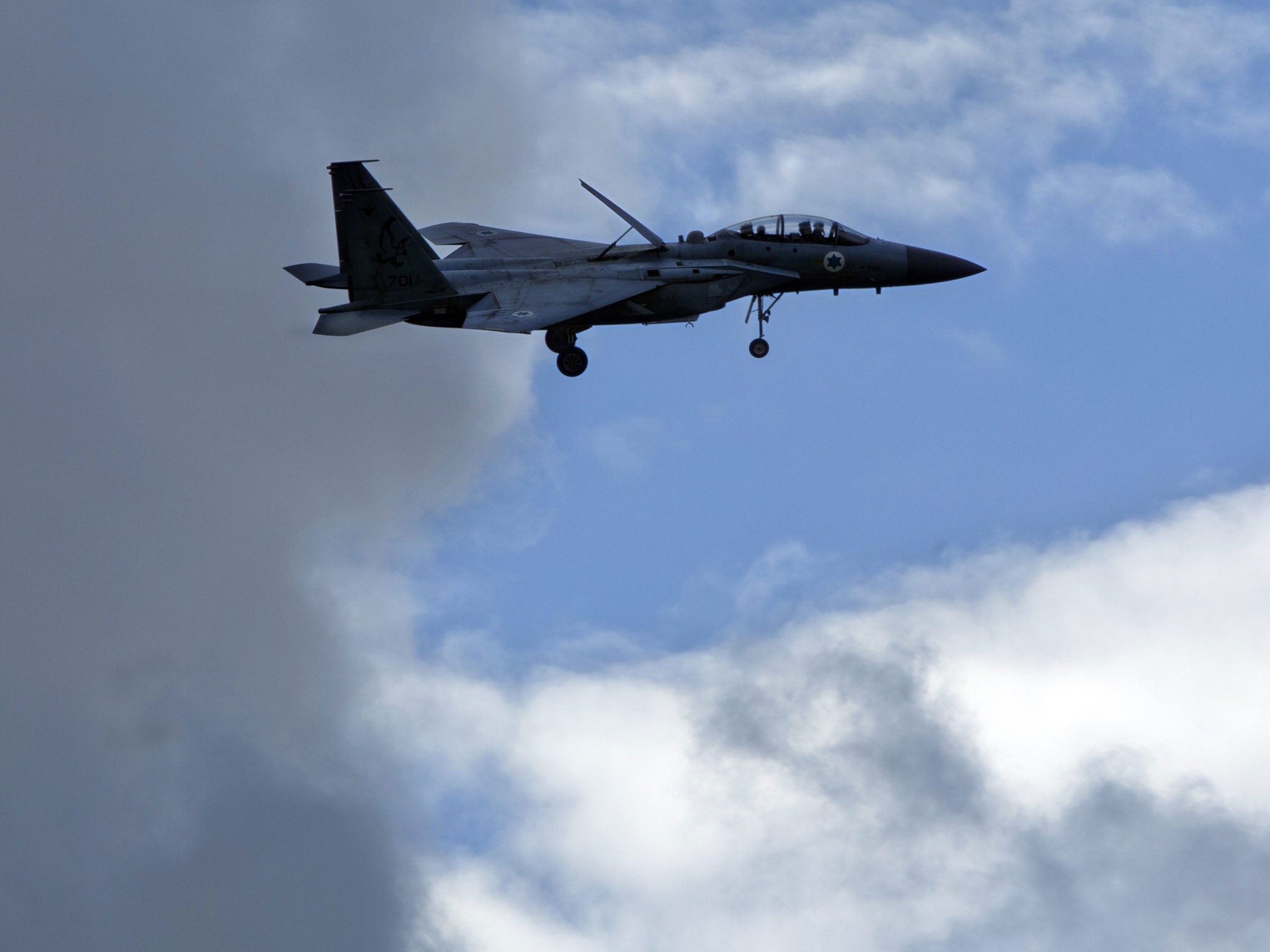Robert Fisk: The truth is that after Israel’s air strikes, we are involved
If the EU and US say nothing about these attacks, approval is granted


Your support helps us to tell the story
From reproductive rights to climate change to Big Tech, The Independent is on the ground when the story is developing. Whether it's investigating the financials of Elon Musk's pro-Trump PAC or producing our latest documentary, 'The A Word', which shines a light on the American women fighting for reproductive rights, we know how important it is to parse out the facts from the messaging.
At such a critical moment in US history, we need reporters on the ground. Your donation allows us to keep sending journalists to speak to both sides of the story.
The Independent is trusted by Americans across the entire political spectrum. And unlike many other quality news outlets, we choose not to lock Americans out of our reporting and analysis with paywalls. We believe quality journalism should be available to everyone, paid for by those who can afford it.
Your support makes all the difference.Lights in the sky over Damascus. Another Israeli raid – “daring” of course, in the words of Israel’s supporters, and the second in two days – on Bashar al-Assad’s weaponry and military facilities and weapons stores. The story is already familiar: the Israelis wanted to prevent a shipment of Iranian-made Fateh-110 missiles reaching Hezbollah in Lebanon; they were being sent by the Syrian government. According, at least, to a ‘Western intelligence source’. Anonymous, of course. And it opens the old question: why when the Syrian regime is fighting for its life would it send advanced missiles out of Syria?
But the Syrians themselves have officially confirmed that military installations were hit by the Israelis. And not for the first time during the rebellion. The Fateh-110 – the new version, at least – has a range of perhaps 250km. And it could indeed reach Tel Aviv from southern Lebanon. If the Hezbollah has actually acquired any. But why would the Syrians send them, as US sources were also claiming last night, when the Americans themselves claimed only last December that the Syrians had used the same ground-to-ground missiles against rebel forces in Syria.
In other words, the Syrian regime was prepared to dispense with their rockets to Lebanon when they were already using them in the brutal war in Syria… Now there are other questions to be asked. If the Syrian air force can use their MiGs so devastatingly – and at such civilian cost – against their enemies inside Syria, why couldn’t they have sent their jets to protect Damascus and attack the Israeli aircraft? Isn’t the Syrian air force supposed to be guarding Syria from Israel? Or are the MiGs just not technically able to take on Israel’s state-of-the-art (American) hardware? Or would that just be a step too far?
Much more important, however, is the salient fact that Israel has now intervened in the Syrian war. It may say it was only aiming at weapons destined for the Hezbollah – but these were weapons also being used against rebel forces in Syria. By diminishing the regime’s supply of these weapons, it is therefore helping the rebels overthrow Bashar al-Assad. And since Israel regards itself as a Western nation – best friend and best US military ally in the Middle East, etc, etc – this means that “we” are now involved in the war, directly and from the air.
Let’s see if the US and the EU condemn Israel’s air attacks. I doubt it. Which would mean, if we are silent, that we approve of them. Silence, to quote Sir Thomas More, gives consent.
So now the Iranians and Hizballah are accused of intervening in Syria – true, though not to quite extent we are led to believe – and Qatar and Saudi Arabia funnel weapons to the rebels – true, but not quite enough weapons, as the Syrian rebels will tell you – and the Israelis have joined in. We are now militarily involved.
The comments on this article have been closed for legal reasons.